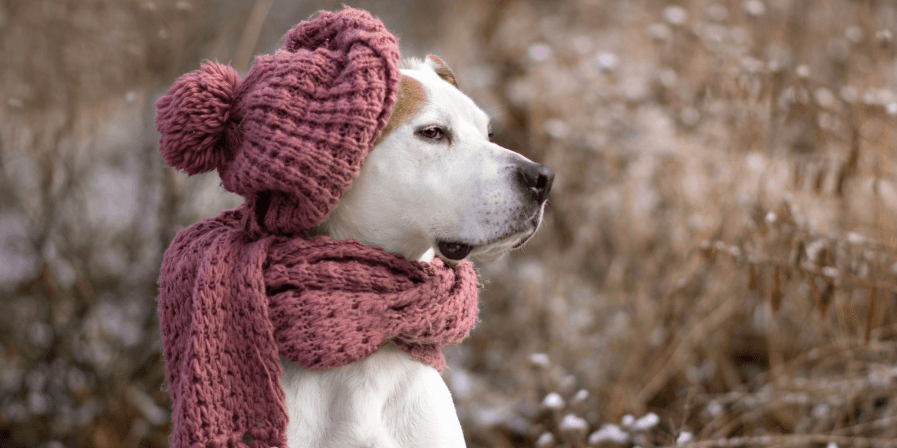Keeping Your Pet Safe and Healthy This Winter

Winter presents unique health challenges for pets. Learn how to prevent common winter health problems and keep your furry friends safe.
Keeping Your Pet Safe and Healthy This Winter
As winter sets in, it's crucial to pay special attention to your pets' health and well-being. While colder weather can bring cozy moments for us, it often presents unique challenges for our furry companions. From hypothermia to joint pain, winter brings a host of issues that require proactive care.
Let’s explore some common winter health problems in pets and effective ways to keep them safe.
1. Hypothermia and Frostbite
Winter temperatures, even if mild, can be harsh on pets, especially those not accustomed to the cold. Hypothermia occurs when a pet’s body temperature drops too low, leading to shivering, lethargy, and muscle stiffness. Frostbite affects extremities such as ears, tails, and paws, causing tissue damage.
Prevention Tips:
- Limit outdoor exposure during chilly mornings and evenings.
- Use protective clothing like pet jackets or sweaters, especially for short-haired breeds.
- Provide a warm, draft-free shelter indoors.
2. Dry Skin and Cracked Paws
The dry winter air can cause your pet’s skin to become itchy and flaky, while their paws may crack due to cold surfaces or de-icing chemicals.
Prevention Tips:
- Regular grooming helps maintain natural oils in the coat and skin.
- Use a humidifier to combat dryness indoors.
- Apply pet-safe balms to paws and wipe them clean after walks to remove irritants.
3. Respiratory Issues
Cold air can exacerbate respiratory issues, particularly in pets with pre-existing conditions. Short-nosed breeds like Bulldogs and Pugs are especially susceptible.
Prevention Tips:
- Minimize outdoor exposure during cold weather.
- Maintain a smoke-free and well-ventilated indoor environment.
- Regular vet check-ups to manage underlying respiratory conditions.
4. Arthritis and Joint Pain
Colder weather can worsen arthritis symptoms in older pets or those with joint issues.
Prevention Tips:
- Provide soft, cushioned bedding to keep your pet warm.
- Maintain a healthy weight and moderate exercise to reduce strain on joints.
- Consult your vet about supplements or medications for arthritis relief.
5. Dehydration and Weight Gain
Despite the cold, pets still need access to fresh water, and inactivity during winter can lead to weight gain.
Prevention Tips:
- Ensure clean, unfrozen water is always available.
- Encourage drinking and consider wet food for hydration.
- Maintain regular exercise with indoor play or short outdoor walks.
6. Toxic Winter Substances
Certain winter substances like antifreeze and de-icing chemicals can be toxic to pets. Pets are often attracted to antifreeze due to its sweet taste.
Prevention Tips:
- Store chemicals securely and clean up spills immediately.
- Inspect your pet’s paws after outdoor walks to ensure they haven't come into contact with harmful substances.
7. Seasonal Depression in Pets
Shorter days and reduced sunlight can affect your pet’s mood, causing lethargy or reduced enthusiasm.
Prevention Tips:
- Increase indoor playtime with interactive toys.
- Spend quality time with your pet to boost their mood.
Prevention and Regular Check-Ups
Winter health issues are preventable with the right care. Regular grooming, hydration, and protection from the cold are essential steps to keeping your pet healthy. Scheduling routine check-ups with your veterinarian helps monitor their well-being.
Conclusion
Winter can be a challenging time for pets, but with the right precautions, you can help them enjoy the season safely. At DCC Animal Hospital, we offer comprehensive care tailored to your pet’s needs. From winter-specific health concerns to routine wellness check-ups, we are committed to keeping your furry friends healthy and comfortable year-round.
Schedule an appointment with us today and give your pets the gift of good health this winter!
FAQs
1. How to keep your pet safe in winter?
- Limit outdoor exposure to prevent hypothermia and frostbite.
- Dress your pet in jackets or sweaters, especially for short-haired breeds.
- Clean and inspect paws after walks to remove harmful chemicals.
- Ensure access to fresh water and provide a warm indoor environment.
- Schedule regular vet check-ups for optimal health monitoring.
2. What are the signs of hypothermia in pets, and how can it be prevented?
- Signs of hypothermia: shivering, lethargy, muscle stiffness, and pale or blue gums.
- Prevention: Limit outdoor exposure, dress pets warmly, and provide a comfortable indoor space. Monitor behavior and consult your vet if symptoms appear.